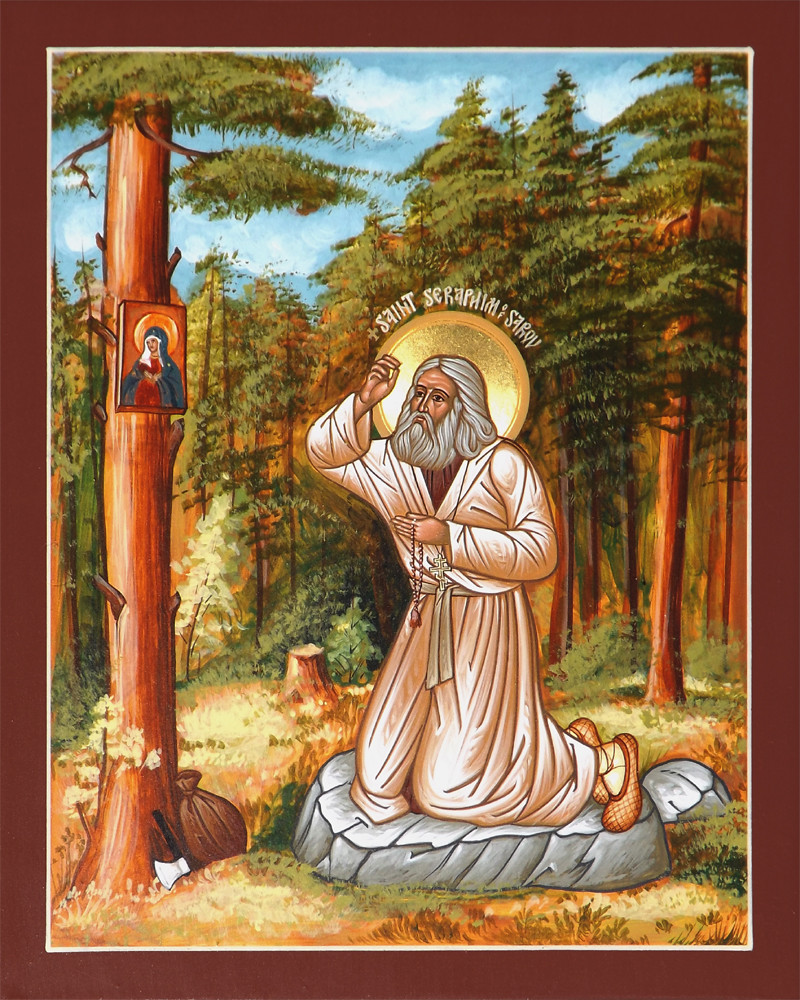
One of the most extraordinary testimonies of spiritual encounter in the Eastern Christian tradition is Nicholas Motovilov’s meeting with St Seraphim in the forest near Sarov in November 1831. Famously, this dialogue between the staretz and his disciple culminates in an experience of divine light, radiating from both men as they are filled with warmth, peace and calm. But in the course of their conversation, Motovilov records some remarkable words from Seraphim about the practice of prayer. In speaking about the mystical gift of stillness, he says:
Many explain that this stillness refers only to worldly matters; in other words, that during prayerful converse with God you must ‘be still’ with regard to worldly affairs. But I will tell yo in the name of God that not only is it necessary to be dead to them at prayer, but when by the omnipotent power of faith and prayer our Lord God the Holy Spirit condescends to visit us, and comes to us in the plenitude of His unutterable goodness, we must be dead to prayer too.
This last phrase is one of the most startling expressions of apophatic theology in Christian tradition, but it is entirely in keeping with the experience of many that it is only in letting go of what we think of as prayer that we truly enter the fullness of divine reality. No words, no images, no thoughts, no intent of gain, no technique, no activity, only complete stillness of body and mind and a radical emptiness or openness.
It is very hard indeed for us to ‘do nothing’ in prayer. We want to be in control, to have an outcome and to feel that we have accomplished something. And surely when the world is in a big mess, the impulse to ‘do something’ is even greater. Paradoxically, however, the act of radical letting go that is true prayer is the only way to turn our own hearts from the dangerous notion of an isolated self and to realise the fundamental connectedness of all things. We let go of the idea that I am here, you are there, God is somewhere else and prayer is some kind of negotiation between these separate loci. Without such a metanoia, we remain the realm of oppositions, a realm that too easily becomes a power struggle. In prayer – in giving up prayer – we let go of all such notions of power over-against another and open ourselves to compassion. Christ Jesus, ‘who emptied himself, taking the form of a slave’ showed us the way and invites us to do the same. One simple way to train ourselves in such a demanding way of life is to give up our notions of prayer in order truly to pray in the utter stillness of compassion and trust.
